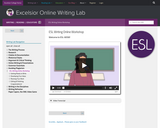
ESL Writing Online Workshop (Video).
- Subject:
- Education
- Language Education (ESL)
- Material Type:
- Module
- Provider:
- Excelsior University
- Provider Set:
- Excelsior University Online Writing Lab
- Date Added:
- 11/06/2018

ESL Writing Online Workshop (Video).
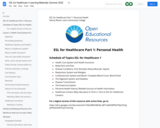
Schedule of Topics ESL for Healthcare 1:
Health Care System and Health Insurance
Body Parts and Pain
Disease Conditions, First Aid (Heat Illness,Wounds, Sepsis)
Respiratory System and Allergies
Cardiovascular System and Blood- Complete Blood Count, Blood Panel
The Digestive System and Diabetes
Disease Transmission
The Endocrine System
Personal Health History/ Reliable Sources of Health Information
Healthcare Careers (May take place in Term 2- Intro to ESL for Healthcare Careers)
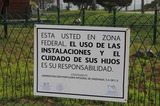
COVID19 Project!
I have several LEP students right now that don't quite have extra time to come down to study in person in the school. I worked up some neat templates to create simple mini-books that highlight common things here in America. Workers, Health Issues, Transportation, etc...
The PLA training materials explain how the language experience approach can help adult learners master this language.
This resource is for just that. Take one or two of the mini-books and use them in your classes.
They are EASY to modify using Microsoft Word. They are EASY to print if you follow the directions I set on the cover page.
I plan to issue one book at a time to my students, when they can read it well I will give them a different book.
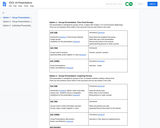
Materials for student presentations in ESOL course that uses the open textbook Communication Beginnings: An Introductory Listening and Speaking Text for English Language Learners by Della Jean Abrahams (http://pdxscholar.library.pdx.edu/cgi/viewcontent.cgi?article=1022&context=pdxopen).
Course Description
Presents oral communication as a process that involves determination of purpose, selection and adjustment of strategies, comprehension checks, and integration of prior knowledge with new knowledge to address the communicative purpose. Develops listening comprehension and speaking skills at a low intermediate level. Addresses use of important language functions, such as asking for clarification, agreeing, and negotiating meaning. Includes one prepared speech. Introduces the English stress system, intonation, and certain consonant and vowel sounds. Places communication in the context of adult life roles.
Intended Outcome(s) for the Course:
Understand oral communication as a process that involves determination of purpose, selection and adjustment of strategies, comprehension checks, and integration of prior knowledge with new knowledge to address the communicative purpose.
Use knowledge about language, culture, and context to prepare for and accomplish communication tasks at the low intermediate level.
Use listening skills to understand and respond to different types of discourse.
Produce spoken English that is mostly understandable with some repetition or clarification.
Begin to identify and correct basic pronunciation problems.
Deliver a planned presentation on a familiar topic.
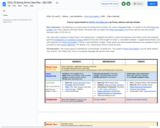
The following is a course layout for Spring terms of ESOL 20: Level 2 Integrated Skills. It is based on the OER Entry into English 2 by Penny Jahrous and Sara Packer. All activity links are either from Entry into English 2 by Penny Jahrous and Sara Packer licensed under CC BY-SA 4.0.
This class plan is based on using Theme 3 for Spring terms. I assigned one theme to each term because each theme covers the assigned grammar breakdowns for Southeast Campus based on the units of the English in Action 2, 3rd Edition textbook. I supplemented Weeks 1&2 with materials from Entry into English 2 Theme 1 and materials I created. Those weeks are fully backward planned as an example of how to use EIE2 to meet course objectives. For Weeks 3-10, I broke down Theme 3 week by week.
All instructors: This course layout is intended for a 9-hour/week, 10 week term. The content of Entry into English 2 can be easily spread over 3 terms.
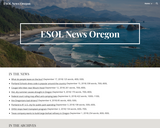
ESOL News Oregon is a website that offers short articles adapted from regional news sources about current events in the state. Stories are labeled with word counts and Lexile levels. Each is accompanied by an image, self-correcting exercises, and source citations.
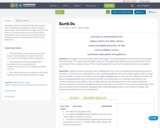
Throughout this unit students will be able to gain an understanding of the importance of protecting the environment. This will be done through a series of mini projects that will focus on the various facets of the environment from a variety of lenses. This unit will change the focus from the personal level to a more global level.
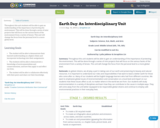
Throughout this unit students will be able to gain an understanding of the importance of protecting the environment. This will be done through a series of mini projects that will focus on the various facets of the environment from a variety of lenses. This unit will change the focus from the personal level to a more global level.
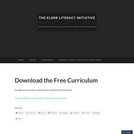
This curriculum was developed for volunteers working 1:1 with pre-literate ESL students. All materials are ready-made and available digitally through dropbox or google drive. This curriculum is organized by 13 instructional themes that are relevant and authentic to adults of any age, with a special focus on learners who are 65+. The curriculum guidelines are informed by Massachusetts ABE Basic Literacy Standards, training materials from the Minnesota Literacy Council, and Transitions Integration Framework. The materials are easy to use with pre-literate learners 1:1, in small groups, or in classroom settings. All activities are leveled and include detailed instructions, tips, and extension ideas.
This curriculum can be adapted and edited to suit your community. For more information, please visit www.elderliteracy.org .
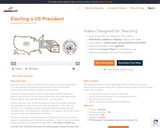
A short and simple guide to understanding the U.S. election process.
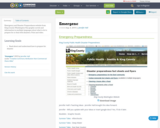
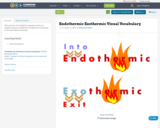
This resource is for English Language Learners or English Learners to help them visualize new vocabulary to increase depth of learning.

This is a text for a workforce/vocational ESL course that prepares advanced learners for a career in the field of law.
Audio tracks: https://audio.com/hillary-fitzmaurice/collections/english-about-law

A chapter on using English idioms for describing people for intermediate ESL learners. The chapter includes audio, guessing meaning from context, and controlled and communicative practice.

A chapter on using English idioms for talking about school for intermediate ESL learners. The chapter includes audio, guessing meaning from context, and controlled and communicative practice.
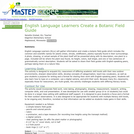
ELL students create and share a botanic field guide incorporating depiction, measurement, description, and classification of common Minnesota trees, shrubs, wildflowers, and plants.
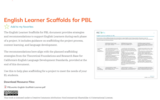
The English Learner Scaffolds for PBL document provides strategies and recommendations to support English Learners during each phase of a project. It includes guidance on scaffolding the project process, content learning, and language development. The recommendations here align with the planned scaffolding strategies from the Theoretical Foundations and Research Base for California’s English Language Development Standards, provided at the end of this document.Use this to help plan scaffolding for a project to meet the needs of your EL students.
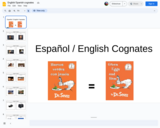
A short PowerPoint on English/Spanish cognates.
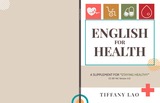
English for Health is an educational supplement designed to help individuals stay healthy by improving their understanding and communication in healthcare contexts. The book covers various topics essential for navigating the healthcare system effectively.Each chapter includes vocabulary lists, grammar exercises, role-play activities, listening scripts, and practical advice to enhance the reader's comprehension and ability to communicate in health-related situations. The book aims to empower readers with the knowledge and language skills necessary for maintaining their health and effectively utilizing healthcare resources.

Introduction to English for Pharmacy Technicians
Hello and welcome! This open educational resource (OER) is a compilation of presentations, worksheets, handouts, and activities created for an English for Pharmacy Technicians course. It supports multilingual learners as they develop competencies in pharmaceutical terminology and workplace communication. This OER is most appropriate for students who are enrolled in a pharmacy technician program. By the end of this resource, students will be able to:
Recognize and make use of pharmaceutical and medical terminology.
Use communication skills and functional language to communicate with patients, pharmacists, doctors, and other medical staff.
This resource includes three sections:
Pharmacy Abbreviations
Introduction to Medication
Workplace Skills for Pharmacy Technicians
The order in which the reader navigates through this resource depends on how the reader’s pharmacy technician course is structured. My main suggestion for teachers and students using this resource is to go based on your course schedule. Use the table of content to check what content or activity you can use for the lesson you are teaching or studying. If you are not currently enrolled in a pharmacy technician course, then I recommend navigating in a chronological order.
Dedication
This resource is for all the powerful multilingual learners I’ve witnessed dedicate themselves to reaching their goals, from my own family, husband, and the students who sit in my class every day. Thank you for all you have taught me.
License Information
This resource is licensed under Creative Commons Attribution-NonCommercial 4.0 International License (CC BY-NC 4.0). That means you can share in any medium or format. You can also adapt this resource by remixing, transforming, and building upon the material as long as you attribute and do not use it for commercial purposes. For further details, visit the CC BY-NC 4.0 License page.